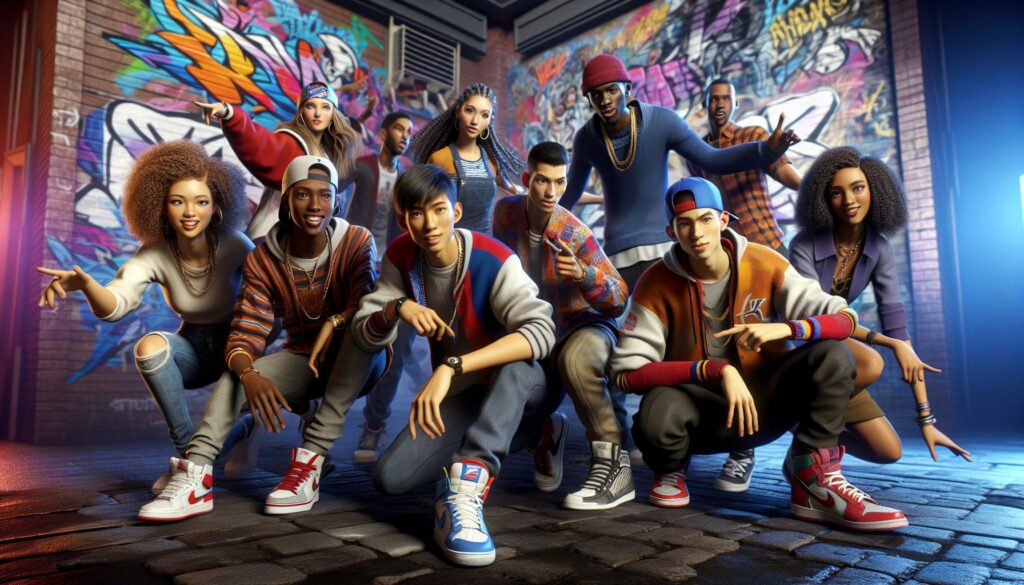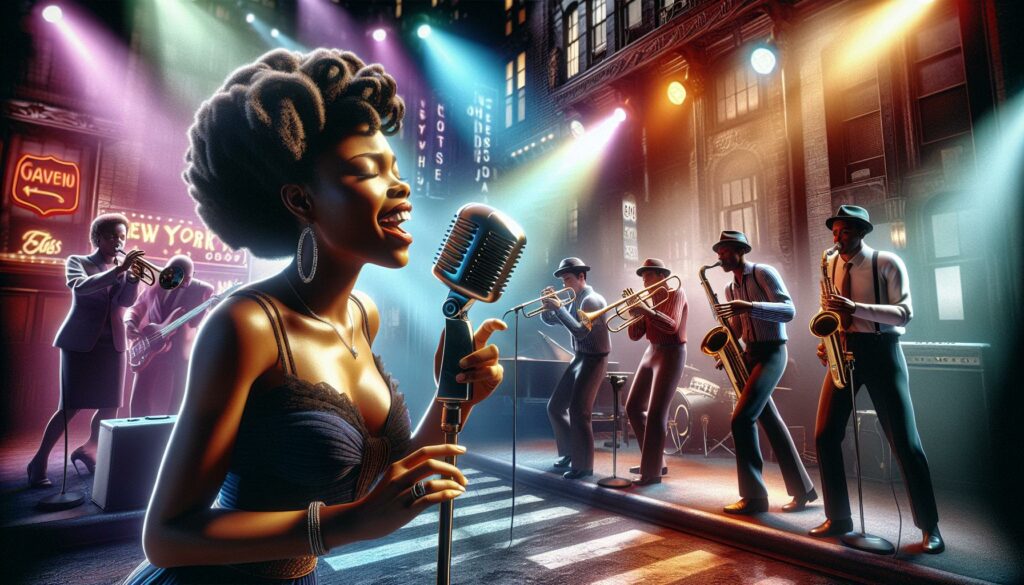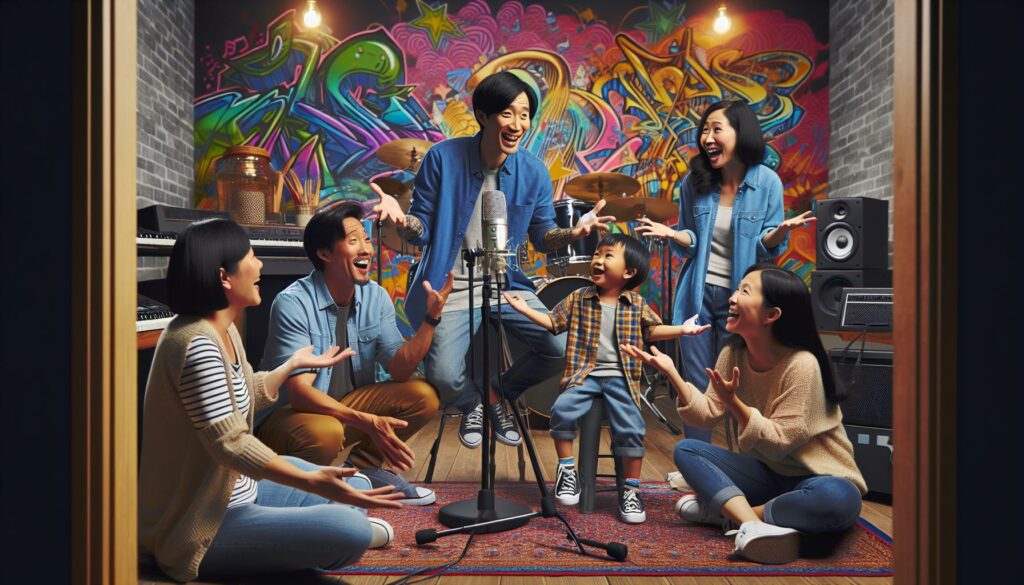Rap music lyrics are more than just words; they’re a powerful form of storytelling that reflects personal experiences, societal issues, and cultural movements. I’ve always been fascinated by how artists weave their narratives, using rhythm and rhyme to convey deep emotions and provoke thought. From the streets of Compton to the clubs of Atlanta, rap lyrics capture the essence of life’s struggles and triumphs.
As I dive into the world of rap lyrics, I’ll explore the techniques that make them resonate with listeners. Whether it’s clever wordplay, vivid imagery, or raw honesty, these elements create a connection that goes beyond the beat. Join me as I unravel the layers of meaning behind some of the most iconic lines in rap history and discover what makes this genre so impactful.
Key Takeaways
- Rap as Storytelling: Rap lyrics serve as a powerful narrative tool, reflecting personal experiences and societal issues through intricate rhythms and clever wordplay.
- Themes of Struggle: Key themes in rap include social issues (like systemic racism and economic inequality) and personal struggles (such as mental health and addiction), fostering a deep connection with listeners.
- Evolution of Lyrical Content: The genre has evolved significantly from its origins, adapting to cultural changes and diversifying in style, addressing contemporary themes relevant to today’s society.
- Literary Techniques: Effective use of literary techniques, such as complex rhyme schemes and vivid imagery, enhances the emotional impact and storytelling aspect of rap lyrics.
- Cultural Impact: Rap music serves as a cultural force, influencing social perceptions and fostering discussions on crucial topics, ultimately acting as a mirror to marginalized communities.
- Connection and Empowerment: Through their lyrics, artists empower communities by validating shared experiences and creating spaces for dialogue on societal challenges, reflecting the genre’s importance beyond entertainment.
Rap Music Lyrics
Rap music lyrics serve as a compelling narrative form that reveals the artist’s perspective, experiences, and environment. Artists use intricate rhythms and inventive rhymes to express emotions, tackling themes such as struggle, resilience, and societal challenges. The genre’s richness lies in its ability to articulate thoughts and feelings that resonate deeply with listeners.
Rap lyrics often incorporate various literary techniques, including:
- Wordplay: Skills in puns and double entendres enhance the depth of meaning.
- Imagery: Vivid descriptions paint scenes that transport listeners into the artist’s world.
- Alliteration: Repeated consonant sounds create a rhythmic flow that adds to the listening experience.
Cultural references frequently appear in lyrics, grounding the narrative in specific historical or social contexts. References to personal stories, community struggles, or broader societal issues highlight the genre’s role as a mirror reflecting reality.
Rap’s evolution over decades showcases various lyrical styles and movements. Each era introduces unique perspectives, demonstrating the versatility of the medium. From the storytelling roots of the 1970s to the present-day blending of genres, the lyrical content continues to challenge norms and inspire.
Rap music lyrics represent a powerful, evolving form of artistic expression that both reflects and shapes cultural conversations. The thoughtful use of language, metaphor, and rhythm captivates audiences, ensuring rap remains a dynamic and influential genre.
Themes In Rap Music Lyrics
Rap music lyrics explore a range of themes that resonate deeply with listeners, often reflecting the realities of life. Two prominent themes include social issues and personal struggles.
Social Issues
Rap lyrics often address pressing societal concerns. Artists highlight topics such as systemic racism, economic inequality, and police brutality. For example, songs like “”Fight the Power”” by Public Enemy confront racial injustices, while Kendrick Lamar’s “”Alright”” offers hope amid despair in marginalized communities. Such lyrics spark conversations and inspire activism, showcasing rap’s role as a catalyst for social change. The ability to articulate collective frustrations makes these themes resonate widely.
Personal Struggles
Personal struggles form another critical theme in rap music. Artists share vulnerabilities like mental health challenges, addiction, and the impact of poverty. Eminem’s “”Lose Yourself”” embodies the fight against self-doubt, while J. Cole’s “”4 Your Eyez Only”” personalizes experiences of loss and redemption. By revealing their own battles, rappers create authentic connections with listeners who face similar challenges, emphasizing resilience and the journey toward self-acceptance. These narratives serve both as catharsis for the artist and relatability for the audience, reinforcing the emotional depth found in rap lyrics.
The Evolution Of Rap Music Lyrics
Rap music lyrics have undergone significant transformations since the genre’s inception, adapting to cultural and societal changes. This evolution showcases how artists express complex themes and emotions through their craft.
Early Influences
Early rap lyrics drew inspiration from African American oral traditions, spoken word poetry, and DJ culture. Artists like Grandmaster Flash and The Furious Five pioneered storytelling methods, using narrative techniques to highlight urban life, struggles, and systemic issues. Tracks such as “”The Message”” addressed poverty and crime, marking a shift towards socially conscious themes. Additionally, the influence of jazz, funk, and soul genres enriched the rhythmic patterns and lyrical style, creating a foundation for future innovations.
Modern Trends
Modern rap lyrics reflect an array of themes, showcasing diverse voices and experiences. Contemporary artists like Kendrick Lamar and Cardi B explore personal narratives and societal critiques, using bold imagery and inventive wordplay. Topics such as mental health, identity, and empowerment resonate through tracks like “”HUMBLE.”” and “”Bodak Yellow.”” The integration of social media allows rappers to connect instantly with fans, influencing lyrical content and relevance in real-time. Furthermore, collaborations across genres expand lyrical boundaries, blending styles and themes, demonstrating rap’s adaptability and continued evolution in the music landscape.
Analysis Of Rap Music Lyrics Techniques
Rap music lyrics employ various techniques that enhance their impact and resonance with listeners. Two significant techniques include complex rhyme schemes and effective storytelling.
Rhyme Schemes
Rhyme schemes form a fundamental aspect of rap lyrics, creating a musical quality that captivates audiences. Many artists utilize internal rhymes, multisyllabic rhymes, and slant rhymes to produce intricate and engaging flow. Internal rhymes occur within a single line, while multisyllabic rhymes involve coordinating multiple syllables across lines. Slant rhymes differ slightly, allowing for creative flexibility where perfect rhymes aren’t possible. Artists like Nas and Tech N9ne exemplify these techniques, showcasing complex patterns that enhance lyrical depth. By playing with rhyme schemes, performers enhance their delivery and draw listeners’ attention to the lyrics.
Storytelling
Storytelling remains a powerful technique in rap, allowing artists to share personal experiences and social critiques. Many lyrics weave narratives that reflect real-life struggles, triumphs, and emotions. This storytelling often employs vivid imagery and descriptive language to transport listeners into the artist’s world. For instance, narratives in songs like “Sing About Me, I’m Dying of Thirst” by Kendrick Lamar highlight the complexities of urban life and personal loss. By crafting compelling stories, artists establish emotional connections with their audiences while addressing broader societal issues. This technique transforms individual experiences into universal themes, resonating with diverse audiences and fostering empathy.
Cultural Impact Of Rap Music Lyrics
Rap music lyrics serve as a significant cultural force, influencing societal perceptions and fostering discussions on crucial topics. Artists portray lived experiences reflecting broader social issues, effectively capturing the essence of marginalized communities. Lyrics often serve as a commentary on systemic racism, economic disparities, and police brutality, prompting listeners to engage in activism and awareness.
Prominent artists like Public Enemy and Kendrick Lamar use powerful lines to galvanize movements, with songs like “”Fight the Power”” and “”Alright”” becoming anthems for social justice. These lyrics challenge the status quo, urging critical examination of societal structures and inciting change. Their ability to evoke strong emotions transforms personal narratives into collective experiences, allowing audiences to connect deeply with the message.
Rap also influences language and cultural trends. The genre cultivates new vocabulary and expressions, enriching the lexicon across communities. Catchphrases and slang from rap songs often permeate mainstream culture, reflecting the genre’s reach and impact. As a result, rap lyrics shape contemporary conversations, merging art with social commentary and influencing young individuals’ worldviews.
Moreover, rap music fosters a sense of identity and pride within communities. Artists often highlight shared struggles and cultural legacies through their lyrics, reinforcing connections among listeners. This representation empowers marginalized groups, validating their experiences and narratives. Through lyrical expression, rappers create safe spaces for dialogue, enabling reflection on societal challenges and triumphs.
The genre’s continual evolution further underscores its cultural significance. While early rap music reflected African American oral traditions, modern artists explore diverse themes and styles, addressing mental health, empowerment, and resilience. Collaborations across genres break down barriers, presenting rap as an inclusive platform for varied voices and experiences.
Rap music lyrics resonate beyond entertainment; they serve as catalysts for change and cultural expression. By weaving personal and collective narratives, artists inspire reflection, provoke discussions, and strengthen connections within society.
Rap music lyrics are more than just words set to a beat; they’re a reflection of life’s complexities. I’ve seen how artists use their craft to voice struggles and triumphs that resonate deeply with listeners. The emotional depth and cultural relevance found in these lyrics create a powerful connection that can inspire change.
As I explore the evolution of rap, it’s clear that this genre continues to adapt and thrive. It challenges societal norms while fostering dialogue around pressing issues. The impact of rap lyrics extends beyond entertainment; they shape conversations and empower communities. I’m excited to see how this dynamic art form will continue to evolve and influence the world around us.



